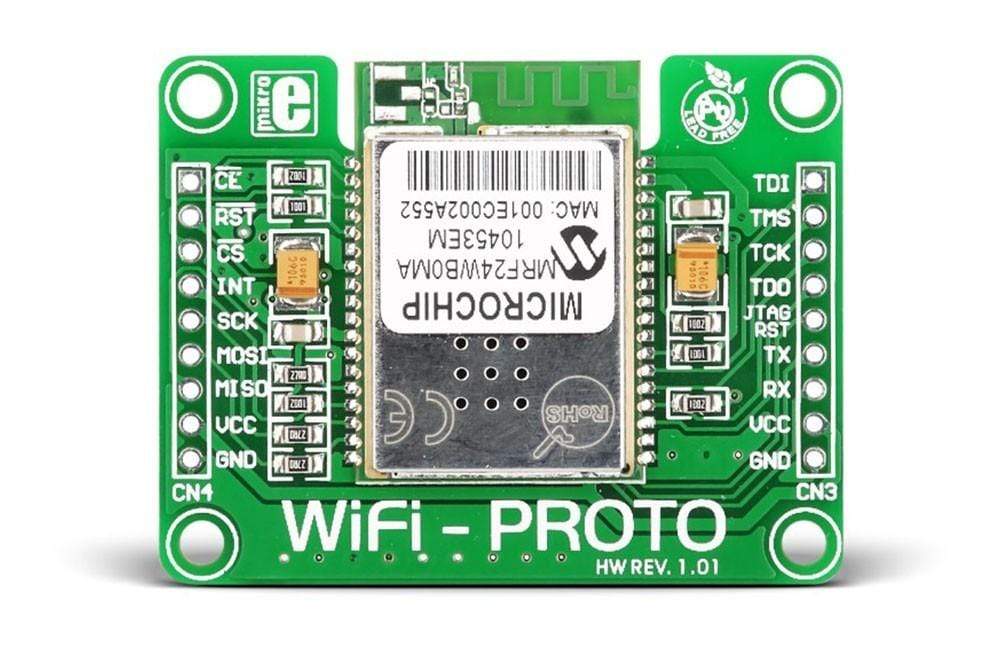
Overview
Add wireless functionality between a microcontroller and a remote device using the MikroE WiFi-PROTO Board. Offered with a compact footprint, this communication board acts as a high performance, low power MRF24WB0MA Wi-Fi radio transceiver module with serialized unique MAC address. It is compliant with IEEE 802.11 standards. The WiFi-PROTO Board is connected to a microcontroller through a proto board that is connected to the I/O port of the development system. This accessory board uses the 4-wire SPI interface for communication with the microcontroller. Additional on-board JTAG and UART modules are provides for testing purposes. The WiFi - PROTO Board also features an integrated PCB antenna and supports Wi-Fi with the free TCP/IP protocol stack. It uses a 3.3V power supply only.
The WiFi-PROTO Board is an ideal choice for low-power, low data-rate Wi-Fi sensor networks, home automation, industrial controls, retail, and medical, fitness and healthcare devices.
Downloads
Fügen Sie mit dem MikroE WiFi-PROTO Board eine drahtlose Funktionalität zwischen einem Mikrocontroller und einem Remote-Gerät hinzu. Dieses Kommunikationsboard mit kompaktem Platzbedarf fungiert als leistungsstarkes, stromsparendes MRF24WB0MA Wi-Fi-Funk-Transceivermodul mit serialisierter eindeutiger MAC-Adresse. Es entspricht den IEEE 802.11-Standards. Das WiFi-PROTO Board wird über ein Protoboard, das an den E/A-Anschluss des Entwicklungssystems angeschlossen ist, mit einem Mikrocontroller verbunden. Dieses Zubehörboard verwendet die 4-adrige SPI-Schnittstelle zur Kommunikation mit dem Mikrocontroller. Zusätzliche integrierte JTAG- und UART-Module stehen zu Testzwecken zur Verfügung. Das WiFi-PROTO Board verfügt außerdem über eine integrierte PCB-Antenne und unterstützt Wi-Fi mit dem kostenlosen TCP/IP-Protokollstapel. Es verwendet nur eine 3,3-V-Stromversorgung.
Die WiFi-PROTO-Platine ist die ideale Wahl für Wi-Fi-Sensornetzwerke mit geringem Stromverbrauch und niedriger Datenrate, Heimautomatisierung, Industriesteuerungen, Einzelhandel sowie Geräte in den Bereichen Medizin, Fitness und Gesundheitspflege.
| General Information | |
|---|---|
Part Number (SKU) |
MIKROE-496
|
Manufacturer |
|
| Physical and Mechanical | |
Weight |
0.1 kg
|
| Other | |
Warranty |
|
HS Code Customs Tariff code
|
|
EAN |
8606015072647
|
Frequently Asked Questions
Have a Question?
Be the first to ask a question about this.

